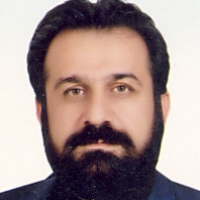The Effectiveness of Teaching Fordyce Happiness Pattern on Family Functioning and Social Competence of Mothers of Mental Retarded Children
The aim of this study was the effectiveness of teaching Fordyce happiness model on family functioning and social adequacy of mothers of mentally retarded children in Arak. The research method was quasi-experimental with pre-test-post-test design with control group and follow-up stage. The sample size consisted of 30 mothers of mentally retarded children who were randomly selected from 108 people in the statistical population, and were randomly (15 people) in the experimental group and (15 people) in the control group. The experimental group in 10 sessions. For 80 minutes, he was trained in the Fordyce model of happiness.Data were collected using the McMaster FAD (1983) Family Performance Questionnaire and the Burmster Social Sufficiency Questionnaire 1988 (ICQ-R) and using multivariate analysis of covariance, univariate analysis of covariance and t-test paired with SPSS-20 software. Were analyzed.
The results of analysis of covariance showed that short-term and long-term Fordyce model training on family performance (problem solving, communication, roles, emotional responsiveness, emotional conflict and behavior control) and social adequacy (initiation, negative comment, conflict resolution). , Self-disclosure and advocacy) have significant effectiveness. Also, the results of t-test showed that there is no significant difference between the mean scores of family performance components and social adequacy components in the post-test phase and the follow-up phase of the experimental group.That is, education has good stability.
Due to the psychological pressure exerted on mothers by the mentally retarded child, family counselors can use Fordyce's happiness model training to improve their family functioning and social well-being.
- حق عضویت دریافتی صرف حمایت از نشریات عضو و نگهداری، تکمیل و توسعه مگیران میشود.
- پرداخت حق اشتراک و دانلود مقالات اجازه بازنشر آن در سایر رسانههای چاپی و دیجیتال را به کاربر نمیدهد.


